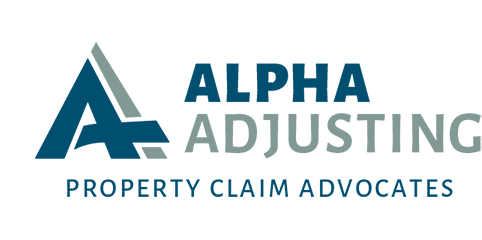Out of the Ashes | Chicago Tribune
Public Adjusters Help Maximize Return on Insurance Losses
It's not exactly one of life's great philosophical questions, but Dorian Bezanis has pondered it anyway: What's the value of a half-roll of fire-damaged toilet paper? Not exactly a question many homeowners have considered and, faced with sorting through the rubble of a home ravaged by fire, even fewer would likely contemplate such a thought. But finding answers to such esoteric and detail-oriented questions is a part of Bezanis' job as a public adjuster, a livelihood built around negotiating insurance claims for homeowners, renters and property owners.
"When a fire occurs, most people make only one call-to their insurance company," says Bezanis, a licensed public adjuster and vice president of Chicago-based Alpha Adjusting Company. "They don't know public adjusters exist, so they try to handle their own insurance claim, and a lot of them fail to negotiate or provide an accurate accounting of the items that have been damaged. As a result, they don't get the full value of their claim."
“They don’t know public adjusters exist, so they try to handle their own insurance claim, and a lot of them fail to negotiate or provide an accurate accounting of the items that have been damaged. As a result, they don’t get the full value of their claim.”
Seriously, though, a half-roll of toilet paper?
"The point is that all of these things cost money to replace, and that's money out of (the insured's) pocket," Bezanis says.
Public adjusters such as Bezanis operate in a little-known niche in the insurance claims business. In Illinois, there are only about 100 public adjusters licensed by the State Department of Insurance.
After a fire occurs, the first reaction of many homeowners is to call the insurance agent. The insurer will send out a claims adjuster, who works with the insurer to assign a value to the damaged items that can be itemized and proven to have existed.
Public adjusters, on the other hand, are paid to prepare, present and negotiate property loss claims to achieve the greatest settlement for the insured.
"The (claims) business is very, very subjective, and when you have a claims adjuster who's working for both the insurance company and the insured, there's a conflict of interest," Bezanis contends.
The fee for a public adjuster's services typically is based on a percentage of the total settlement. The standard fee in the Chicago area is 10 percent of the settlement. A claims adjuster for an insurance company charges no fee to the insured party.
Bezanis got into the public adjusting business in 1990, after more than a decade in building trades. Prior to joining Alpha Adjusting, Bezanis renovated several fired-damaged buildings on Chicago's North Side and in the suburbs. His first introduction to the public adjusting business came in 1987 when Curt Yearwood, president of Alpha, provided public claims adjusting on a burned-out building in Uptown Bezanis was renovating.
Over the next 13 years, Bezanis and Yearwood crossed paths on several other buildings. In 1990, Bezanis joined Alpha Adjusting and moved in to adjusting on a full-time basis. Over the last half-decade, he has seen a lot of home and property owners make common mistakes:
Not knowing what they're entitled to. Whether it's a roll of tape or a plaster ceiling, virtually all have some value, Bezanis says.
Not taking the time to conduct a proper inventory. Content claims are very laborious, Bezanis says. A recent claim for a one-bedroom apartment dweller took Alpha Adjusting two days for on-site inventory, plus additional time to input raw data into the computers, he says.
Not presenting the claim case correctly. Having the claim inventoried and presented in an organized manner are important, as is establishing a fair value for items. How much, for example is a 5-year old sofa bed worth given depreciation?
Estimating replacement costs. When structural damage is involved, many homeowners get repair estimates from contractors recommends by an insurance company or they'll be solicited by a construction company, Bezanis says. "Contractors, be they the best contractor around, look at things and say, 'How do I fix this?' " A skilled public adjuster will present more options than just a replacement by correctly valuing the damaged property, he says.
Whining. Policyholders often forget that the insurer's claim adjuster is a human being, Bezanis says. "The company adjusters constantly have people pulling on their shirt sleeves saying, 'more, more, more,' and that's counterproductive. It's not effective negotiating."
Another negotiating mistake many policyholders make is that they take things personally, Bezanis says. "A lot of times, if the insured doesn't like what the claims adjuster says, they begin to lose their calm, and staying calm and presenting the facts is the best way to negotiate."
One of the hardest challenges in his business comes when a client calls the insurance company adjuster first, then decides he or she wants to hire a public adjuster, Bezanis says.
"It's human nature," he says. "Once (the company adjuster) has made a decision, he wants to stick to his guns. When a company adjuster goes to property before us and makes out his scenario, that's where we end up butting heads."
"We're in a business about justification," he says. "If you document the claim correctly, you'll be able to justify the facts."
“We’re in a business about justification. If you document the claim correctly, you’ll be able to justify the facts.”

